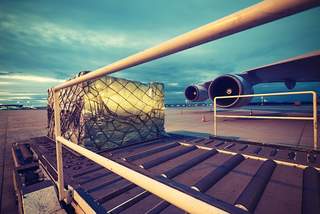
© Fotolia/chalabala
Effective instruments for climate protection in air traffic
Air transport has been successfully using climate protection instruments for many years and the success is impressive. This is because air traffic has been growing CO2-neutrally since 2012. This is because air traffic within Europe and Germany is included in the EU Emissions Trading Scheme (EU-ETS). For global air traffic, the introduction and implementation of the market-based climate protection instrument for international air traffic in the form of the offsetting system CORSIA (Carbon Offsetting and Reduction Scheme for International Aviation) from 2020 will ensure that air traffic worldwide will only grow in a CO2-neutral manner.
Promoting the competitiveness of the air transport industry
Efficient CO2 reduction requires a conclusive overall concept with effective climate protection instruments that do not place an additional burden on airlines. Compensation of CO2 emissions is an effective tool, as CORSIA, for example, already provides for. It is essential for the competitiveness of the aviation industry that no further tax burdens are imposed. Moreover, lower kerosene consumption is also in the interest of the airlines, for which kerosene currently accounts for about one third of their operating costs. Investments in technical advances and further developments in aircraft construction in recent years have ensured that the energy requirements of aircraft and thus also CO2 emissions have been reduced. If we look at the German aviation fleet, fuel reduction has been highly successful. Germany's air fleet today consumes an average of 3.58 liters of kerosene per 100 kilometers per passenger - 43 percent less than in 1990. In a global competitive market, we must not place European aviation at a competitive disadvantage and have air transport shifted to non-European hubs. This leads to carbon leakage and damages European air transport. This does little to help protect the climate.
Creating incentives for climate protection instruments
The key to greater energy and environmental efficiency in air transport therefore lies in a combination of technical improvements (such as more efficient engines, lighter materials), more effective flight operations (such as weight reductions, new flight procedures, optimized maintenance), more efficient infrastructure (such as better coordinated air traffic control, fuel-saving approach procedures) and the use of efficient economic climate protection instruments (such as incentive systems for blending CO2-neutral fuels of synthetic or biogenic origin). The latter set CO2 price impulses not only for the demand side but also for the supply side. The blending of CO2-neutral fuels is of central importance for climate protection. Existing instruments for taxing the energy source are unsuitable because they do not differentiate between fossil and CO2-neutral fuels.



